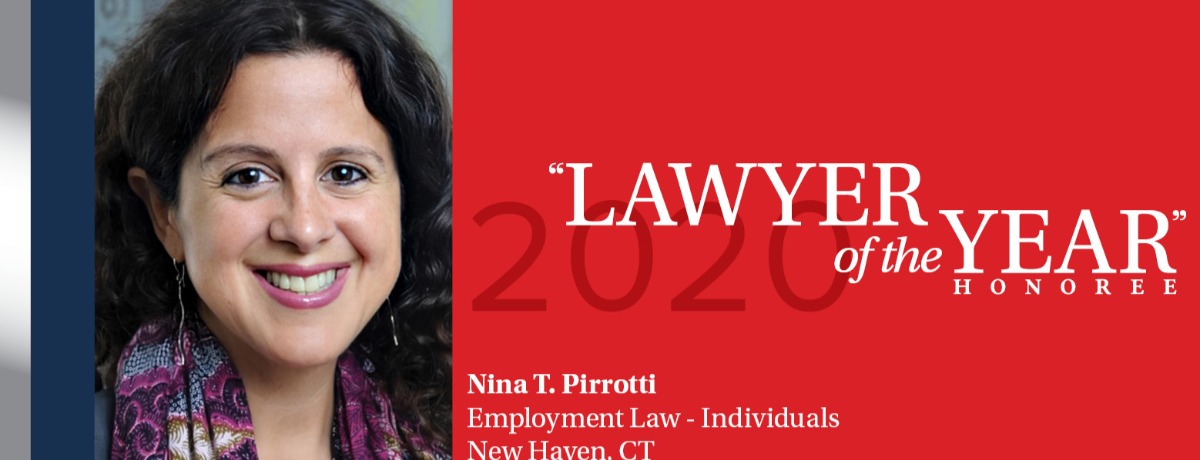October Brings Employment Law Changes to Maryland
October in Maryland is a time of ripening pumpkins and falling leaves. October 1 is also the date when many (but not all) laws passed by the Maryland General Assembly go into effect. This year’s batch of new employment laws contains a couple of “tricks” for employers and “treats” for employees and the plaintiff’s bar who represent them.
Workplace Harassment
Motivated perhaps by the continuing “Me Too” movement, the Legislature made some changes to the Maryland Civil Rights statute to address workplace harassment. A new provision specifically defines “harassment” to include conduct based on “race, color, religion, ancestry or national origin, sex, age, marital status, sexual orientation, gender identity, or disability.” The new law also adds a section defining employer liability for workplace harassment.
The statute then greatly expands the time period in which an employee may file a charge of harassment. Instead of the normal six-month limitation applicable under the Civil Rights law, an employee alleging any form of harassment now has two years after the date of alleged harassment within which to file a complaint with the state agency. The statute also provides that a complaint filed with a federal human relations commission (e.g., the Equal Employment Opportunity Commission) “within 6 months,” or a local human relations commission within two years will be deemed to be timely under the state statute.
The time to file private harassment lawsuits under the Maryland discrimination law has also been extended. Such a suit is timely if filed within three years after the alleged harassment, instead of the two-year limitation applying to other forms of employment discrimination.
The new law also makes a startling change to the definition of “employee” contained in the Civil Rights law. That term now includes “an individual working as an independent contractor for an employer.” This definition is not limited only to cases of workplace harassment, as the changes discussed above are. Thus, independent contractors may file charges and lawsuits claiming employment discrimination under Maryland law against the organizations with whom they contract. Likewise, employers will potentially be liable for any discriminatory conduct by an independent contractor with whom it deals, just as they are for their employees. Also, independent contractors will be counted in determining if an organization meets the definition of an employer under the statute.
Speaking of which, the new law makes a drastic change to that definition of “employer.” In charges alleging workplace harassment only, the Maryland Civil Rights law will cover an organization that has a single (1) employee. For charges alleging other forms of discrimination, an organization must have 15 employees for each working day in each of 20 or more calendar weeks in the current or preceding calendar year in order to be covered.
These statutory changes will apply only to charges arising after October 1. The extended time limits for charges of workplace harassment will require extra caution by employers. Employers who receive internal complaints of workplace harassment should ensure that all documentation of such complaints and evidence uncovered in the subsequent internal investigation, including emails and other electronic evidence, are retained for at least the two-year limitation period, if not longer.
Organ Donation Leave
The Maryland General Assembly also created a new unpaid leave for individuals who wish to donate their organs or to donate bone marrow. Organ donors are entitled to up to 60 business days of leave in any 12-month period; bone marrow donors are entitled to up to 30 business days of leave. The leave may not be considered a break in service for purposes of wage adjustments, sick leave, vacation, PTO, annual leave, or seniority. During the leave, the employer must maintain group health coverage under the same conditions that would have applied if the employee had remained continuously employed.
The leave-taker is entitled to reinstatement to his/her same position, or to an equivalent position. Reinstatement may be denied by the employer due to “conditions unrelated to the exercise of rights established under” the statute. Typically, the employer would have the burden of proving that the reason for denying reinstatement is legitimate and unrelated to the taking of leave.
To be eligible for the leave, the employee must meet the same length of employment requirements that apply to federal FMLA leave. However, the law states that organ donation leave may not be taken concurrently with any federal FMLA leave. Covered employers under this statute are those that employ at least 15 individuals in Maryland.
As with most employment leave laws, the new organ donor leave statute prohibits retaliation against an individual who seeks to invoke the terms of the Act. The Act will be enforced by the Maryland Commissioner of Labor.
If you have any questions regarding the new laws or other labor or employment issues, please feel free to contact the author of this Alert, Jay Fries, jfries@fordharrison.com, who is a partner in our Baltimore and Tysons Corner offices. Of course, you may also contact the FordHarrison attorney with whom you usually work.
































